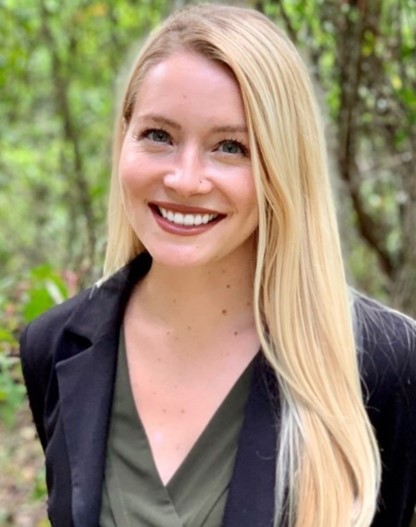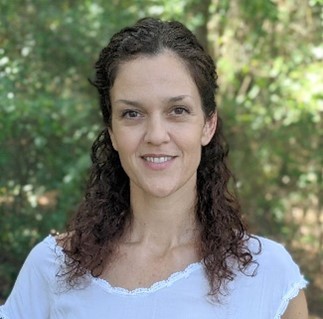 HHP - Update me in site_config > General Configuration
HHP - Update me in site_config > General Configuration
Leadership and Staff

A clinical psychologist with public health expertise, Dr. Tucker has over 35 years of extramurally funded research guided by behavioral economics on harmful substance use and related risk behaviors, including HIV/AIDS, using community and treatment populations, with awards from NIAAA, NIDA, CDC, and SAMSHA/CSAT. Recent projects aim to inform risk reduction strategies with problem drinkers attempting natural recovery and disadvantaged emerging adults. Her current NIAAA-funded “Horizons” study is using digital peer-to-peer recruitment to reach under-served emerging adults and evaluate a brief web-based behavioral economic intervention to reduce risky drinking by increasing future orientation and engagement in pro-social alternatives to drinking. Dr. Tucker has contributed to 4 books, including Dynamic Pathways to Recovery from Alcohol Use Disorder: Meaning and Methods (Tucker & Witkiewitz, 2022; https://doi.org/10.1017/9781108976213), and over 135 journal articles and book chapters. Notable recognitions include the 2015 Distinguished Scientific Contributions to Clinical Psychology award from Division 12 (APA Society of Clinical Psychology) and the 2018 Betty Ford award from the Association for Medical Education and Research on Substance Abuse.

Dr. Berry is an experimental psychologist. Her primary areas of research include 1) basic processes of operant reinforcement, learning, memory and behavioral economics often in the context of drug misuse and other health-related behaviors, 2) the evaluation of abuse liability and behavioral and cognitive effects of various drugs, 3) the intersection of human and environmental health, benefits of nature exposure, and environmental conservation. Closely related to her work on the intersection of human and environmental health, she is exploring novel applications of the benefits of nature exposure on drug misuse. Her current focus on clinical drug misuse research stems from a foundation of preclinical and clinical training in behavioral pharmacology, and basic and translational behavioral research in decision-making and behavioral economics. Dr. Berry is the recipient of numerous early-career scholarship, fellowship and grant awards including awards from the National Institute on Drug Abuse and the National Science Foundation. Her research is frequently covered in popular press news outlets such as Scientific American, Pacific Standard Magazine, Fast Company Magazine, and The Huffington Post.

Dr. Yurasek’s background and training is in Clinical Psychology with an emphasis on substance use and health behaviors. Her primary interests include using behavioral economic theory to identify risk factors for substance misuse and poor response to treatment and adapting and evaluating brief interventions. Current grant-funded projects include a 1) K23 Training Award (NIDA) to adapt a behavioral economic intervention for truant youth who use marijuana, and 2) an Early Career Psychologist Research Award (APA Division 50, Addiction Psychology) to guide treatment development for youth. She is also a Co-Investigator on an NIAAA R01 (PI: Tucker) evaluating a brief web-based behavioral economic intervention to reduce risky drinking in an emerging adult population. Dr. Yurasek leads the Behavioral Economic Approaches to Changing Health behaviors (BEACH) Research Group.

Dr. Nichole Scaglione is the director of HEB’s Substance Abuse and Sexual Assault Prevention Research (SAPR) Lab, where her team studies the risk and protective factors that affect substance use and sexual assault risk in adolescents and young adults. Her research is grounded in theories of behavior change, with specific focus on both planned (i.e., intentional) and reactive (i.e., socially driven) decision-making processes associated with increased risk or the prevention of negative outcomes. She uses findings from her etiological research to inform the design and evaluation of innovative interventions to prevent substance use/abuse and sexual assault victimization, revictimization, and perpetration. In her capacity as the Chair of CBEHR’s Education and Training Committee, Dr. Scaglione oversees the development and administration of the CBEHR dissertation award, as well as the planning of the annual CBEHR training symposium. She was recently selected as one of 10 Excellence Awardees for Assistant Professors at the University of Florida in 2022.

Manju Karki, a native of Nepal, holds an MPH in Epidemiology from the University of Michigan in Ann Arbor. She has been working at the University of Florida for over a decade in different departments managing different health research projects. Prior to working at UF, Manju worked on a wide array of public health projects in settings ranging from academic institutions, non-profits, to the United Nation Organizations in different countries. Manju’s past research experiences have been in substance use, harm reduction, HIV/AIDS, women’s health, and Florida Medicaid. Manju is passionate about community health projects. Her primary role is to lead and manage the NIAAA research project Digital Motivational Behavioral Economic Intervention to Reduce Risky Drinking Among Community-Dwelling Emerging Adults and provide support to the CBEHR activities.

Stinson’s research interests lie in alcohol misuse, excessive social media use, and behavioral economic-informed analyses and treatment methods. Trained as a behavior analyst, she is also interested in quantitative models of choice behavior. Dr. Stinson’s recent dissertation involving a novel application of contingency management to reduce excessive social media use was awarded several awards, including the BF Skinner Student Research Award. As a Post-doctoral Associate with CBEHR, she is currently working on research that is focused on behavioral economic treatments for and analyses of alcohol misuse.

Dr. Justin Van Heukelom received a degree in Psychology at the University of North Carolina Wilmington under the primary mentorship of Dr. Raymond Pitts. His research has concerned behavior-analytic approaches to understanding and treating substance misuse, to which end he has been involved in human and nonhuman translational research. As a current postdoctoral associate at CBEHR, Dr. Van Heukelom is investigating alcohol misuse and its treatment among community-dwelling emerging adults.

Shahar Almog is currently a doctoral candidate working with Dr. Meredith Berry. Almog’s research focuses on novel therapeutic approaches to mental health conditions and substance use disorders such as exposure to nature and ketamine therapy. Her dissertation examines the effects of exposure to nature on behavioral economic outcomes of delay discounting and demand for substances among regular substance users. Her ketamine research examines the misuse liability of medicinal ketamine among long-term patients.